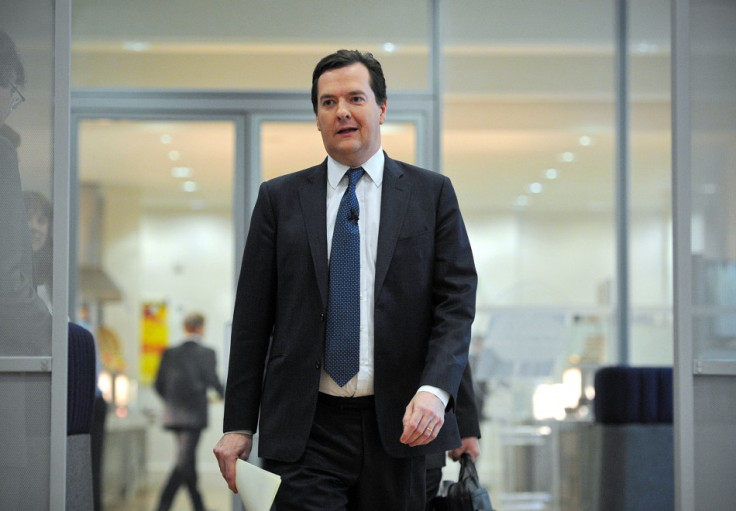Chancellor George Osborne to Unveil RBS and Lloyds Fate

Britain's Chancellor George Osborne will give a clearer indication on the reprivatisation of Britain's two state-controlled banks in his annual speech to financiers on Wednesday.
Osborne confirmed in a radio interview that he will deliver more details on how the government plans to return the Royal Bank of Scotland and Lloyds Banking Group to the private sector after pledging to do so by the end of 2014.
RBS and Lloyds are 81% and 39% owned by the taxpayer respectively, and analysts say that returning them to private ownership will help the incumbent Conservative Party win support in time for the next national election in May 2015.
Britain's previous Labour-led government originally injected £66bn (€78bn, $102bn) of taxpayers' money into RBS and Lloyds to save them from collapse.
On Wednesday, the Parliamentary Commission on Banking Standards (PCBS) released a highly-anticipated 500-page report on how to clean up the banking industry by installing new codes of conduct and laws for its culture and practices.
The PCBS urged the government to consider breaking up RBS, as well as a range of additional strategies.
Routes to Privatisation

In May, Prime Minister David Cameron said he was "open to all ideas" for returning the banks to private privatisation. The Finance Ministry and UK Financial Investments, which manages the government's shareholdings, are already thought to be in favour of selling the shares in blocks to financial institutions, such as pension funds.
However, a number of PCBS members advocate hiving off RBS's toxic loans into a 'bad bank' leaving the remaining 'good bank' better able to lend to British businesses and households.
Among other points by the commission, the PCBS said that the government had interfered in the running of RBS and Lloyds Banking Group, which has only hurt the health of the banks.
Earlier this month, one of Britain's most influential think tanks urged the government to hand back a majority of the RBS and Lloyds shares to the taxpayer, in order to return the banks to the private sector where "they belong."
According to a report by Policy Exchange, by pushing for a mass share distribution which would create the country's largest-ever privatisation, the banks' stability would be increased without major risk to the taxpayer.
However, Labour's shadow chancellor Ed Balls MP warned on Wednesday that Osborne "must resist the temptation for a loss-making firesale."
"On the future of RBS and Lloyds, it is vital that government decisions are driven by the best interests of the British taxpayer and the wider economy, not a political timetable," said Balls in a statement.
"On RBS in particular, Cameron and Osborne must resist the temptation for a loss-making firesale at the current share price which would add billions to the national debt. As Stephen Hester said last week, RBS is capable of being worth more than what the taxpayer paid.
"Instead the Government must look at the whole range of options for the future of RBS to ensure the taxpayer gets its money back and there is no return to business as usual. This should include looking at the case for splitting retail and investment banking at RBS, as the Commission proposes."
© Copyright IBTimes 2025. All rights reserved.






















